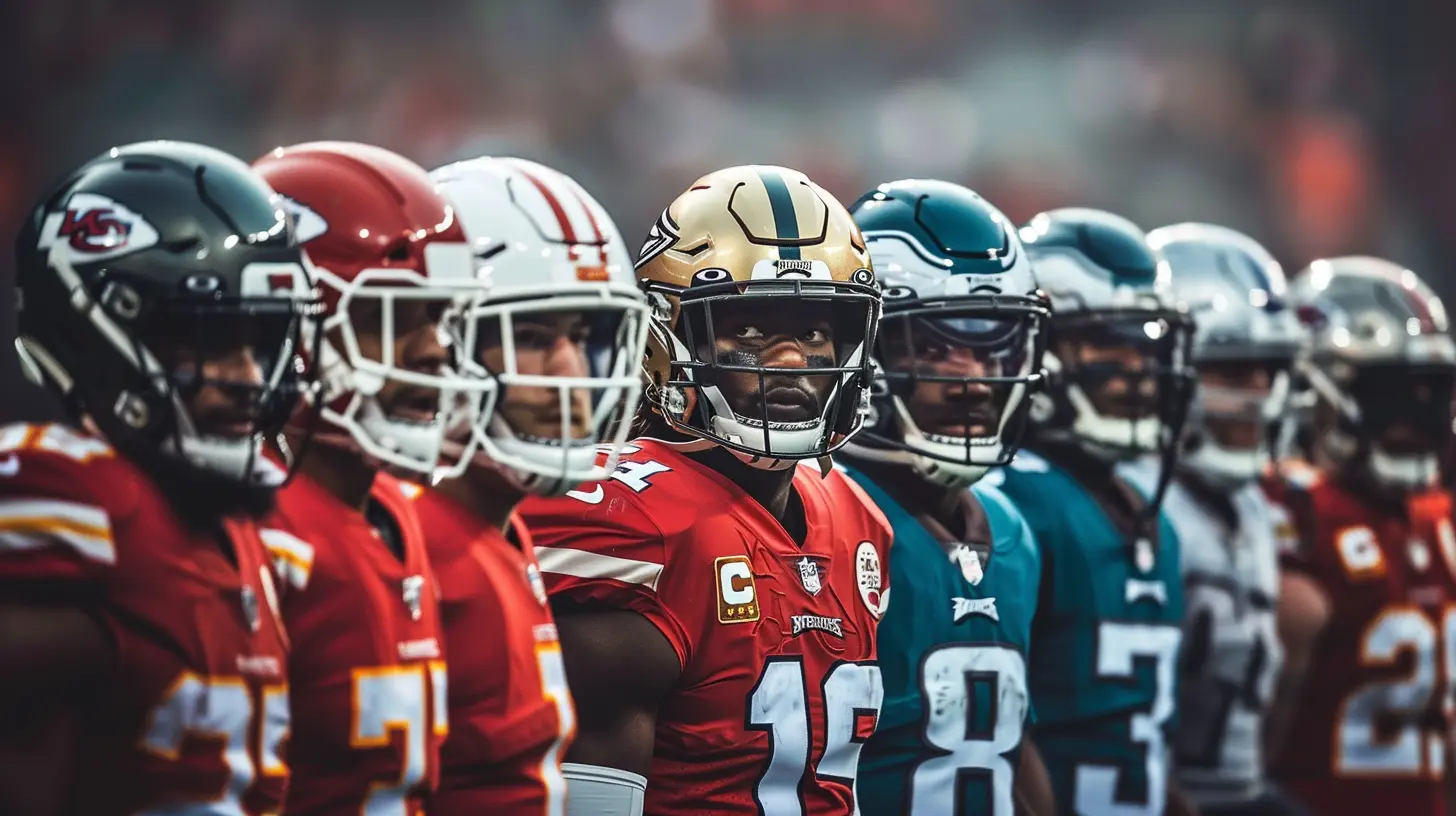Revolutionary Changes in League Formats: Pros and Cons
20 October 2025
Sports leagues have always been a canvas of change, constantly evolving to keep up with the times. Whether it’s football, basketball, or cricket, leagues worldwide have undergone major transformations in their formats—some welcomed with open arms, others met with fierce resistance.
But why do leagues change in the first place? Is it for the fans, the players, or just an elaborate money-making scheme? Let’s dive deep into the revolutionary changes in league formats, the good, the bad, and everything in between.

The Evolution of League Formats
Sports leagues didn’t always look the way they do today. The traditional formats were simple—teams played a round-robin schedule, the best ones moved forward, and ultimately, the champions were crowned. But as time progressed, the demand for something fresh, something more thrilling, took over.TV rights, sponsorship deals, and global audiences have pushed leagues toward drastic transformations. From European football introducing the UEFA Champions League format to cricket bringing in franchise-based T20 leagues, every shift has been a well-calculated gamble.
Let’s break down the pros and cons of these revolutionary changes.

The Pros: Why Change is Sometimes Good
1. More Excitement, More Drama
New formats often bring unpredictability. Take knockout stages or playoffs, for instance. A single game can make or break a team’s season. Unlike traditional formats where dominance over time determines the winner, these setups thrive on edge-of-the-seat drama.Think about it—would the NBA Finals feel the same if it were just a points-based league? The thrill of a Game 7, the last-minute heroics, and the heartbreaks are what truly keep fans hooked.
2. Increased Fan Engagement
Formats like the IPL (Indian Premier League) have successfully roped in fans from all over the globe. The shorter, faster-paced structure keeps audiences engaged, making every match a high-stakes encounter.In contrast, traditional leagues sometimes suffer from mid-season dullness, where a few teams dominate, making the rest of the matches feel irrelevant. New formats breathe life into stagnant leagues, ensuring that every game matters.
3. Better Commercial Prospects
Let’s be real—money talks. League organizers understand that revamped formats attract more viewership, which in turn attracts sponsors and advertisers.Take the Super League concept in European football, which was met with severe backlash. Despite its failure, the driving force behind it was financial growth. Whether we like it or not, money is a crucial factor in the evolution of sports.
4. More Opportunities for Teams and Players
New formats often allow smaller teams to shine. Traditional structures tend to favor historical powerhouses, but innovative leagues provide underdogs with a chance to upset the giants.Look at Leicester City's historic win in the Premier League or how emerging cricketing nations get a platform in leagues like The Hundred. Change often brings new heroes to the limelight.

The Cons: When Change Backfires
1. Tradition Takes a Backseat
With every revolutionary change, there’s always a group that resists it. Hardcore fans thrive on tradition—the way things have always been. Introducing new formats can alienate these loyal followers who feel like their beloved sport is losing its authenticity.For instance, the European Super League backlash wasn’t just about money—it was about legacy, history, and what football truly means to the fans.
2. Too Many Matches, Too Much Fatigue
Expanded leagues and additional knockout rounds often lead to congested calendars. More games mean more revenue, but at what cost? Players face burnout, injuries rise, and the quality of the sport can sometimes take a nosedive.Fans too can experience fatigue. Oversaturation dilutes the excitement—when every match is "important," none of them truly feel special.
3. Widening the Gap Between Big and Small Teams
Some league format changes are designed to benefit the elite clubs, creating an unfair disparity between rich and poor teams.Closed leagues, like the proposed Super League, would have prioritized financial gains for a few, leaving smaller teams in a struggle to survive. Such changes don’t promote fair competition but rather reinforce the dominance of the wealthiest clubs.
4. Loss of True Competition
Certain formats, particularly those with franchise-based models, have been criticized for valuing entertainment over genuine competition.For example, the draft system in some sports prevents teams from building long-term dynasties, making it more about the spectacle than true sporting merit. Some purists argue that leagues should be earned and not handed out based on commercial viability.

The Verdict: Do Revolutionary Changes Help or Hurt?
Like a coin that spins endlessly in the air, changes in league formats always carry two sides. They bring fresh energy, attract larger audiences, and generate more revenue. Yet, they also risk alienating traditionalists, exhausting players, and sometimes prioritize profit over the purity of competition.The key lies in balance. Evolution should never mean ignoring history. While leagues must adapt to modern demands, they should do so without stripping away the essence of what made them great in the first place.
At the end of the day, whether you’re a fan of the new formats or a loyalist of the old ways, one thing remains unchanged—sports will always be about passion, drama, heartbreak, and glory. And as long as that remains intact, the games will go on, forever captivating our hearts.
all images in this post were generated using AI tools
Category:
Sports LeaguesAuthor:

Preston Wilkins
Discussion
rate this article
1 comments
Alanna Thornton
While revolutionary league formats can enhance excitement and competitive balance, they risk alienating traditional fans and undermining the sport's historical integrity. Striking a balance between innovation and preserving the essence of the game is crucial for long-term success.
October 22, 2025 at 2:16 AM

Preston Wilkins
Thank you for your insights! Balancing innovation with tradition is indeed vital for maintaining fan engagement while evolving the sport. Your perspective highlights the challenges we face in modernizing league formats.


